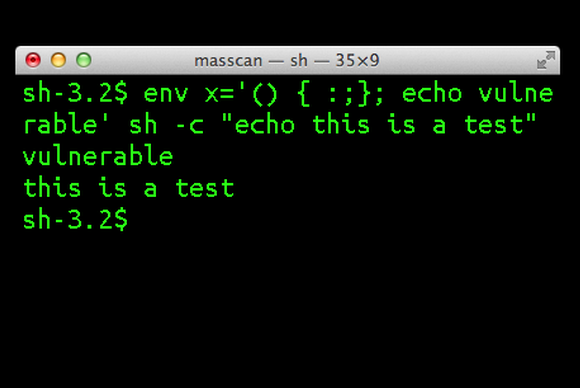Apple released a patch Monday for Shellshock, a serious software vulnerability disclosed last week, although the company had said it posed no risk to most users.
 Shellshock is the nickname for a flaw in the GNU Bourne Again Shell, or Bash, which is a command-line shell processor used for sending commands to an operating system. It is prevalent in Unix and Linux systems.
Shellshock is the nickname for a flaw in the GNU Bourne Again Shell, or Bash, which is a command-line shell processor used for sending commands to an operating system. It is prevalent in Unix and Linux systems.
The flaw in Bash, which has been present for two decades, could allow an attacker to take complete control of a computer if the software is remotely accessible. An attacker could append malicious commands into a CGI (Common Gateway Interface) request, which would then be processed by a server.
The concern over Bash rivaled that of “Heartbleed,” a vulnerability found in OpenSSL, a widely used open-source code library used to encrypted data between a client and a server. Like OpenSSL, Bash is present in a variety of software programs.
While security experts rank the Bash flaw as severe, the risk is dependent on how it is wrapped into other software.
Apple’s OS X operating system is derived from Unix. Soon after the flaw became public, Apple advised that only users who have configured advanced Unix services may be vulnerable to the Bash flaw.
Security vendor Intego said Bash would be exposed on OS X if remote login was turned on for all users, a generally unsafe setting anyway. Older OS X servers that run Apache or PHP scripting environments could also potentially allow access to Bash, it said.


